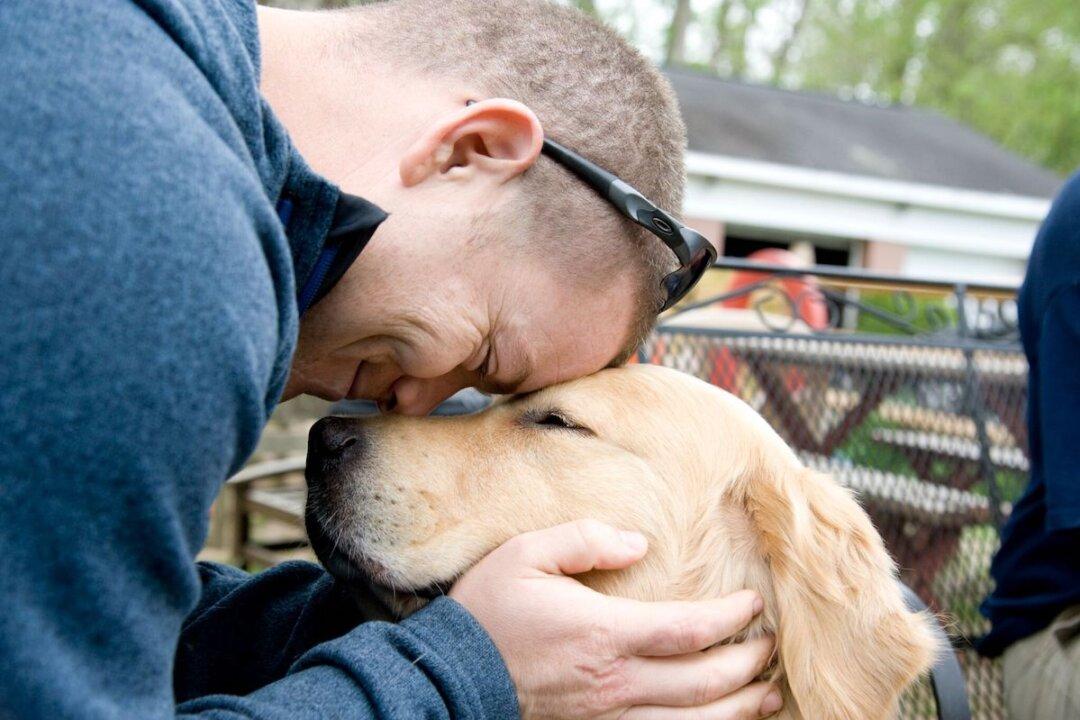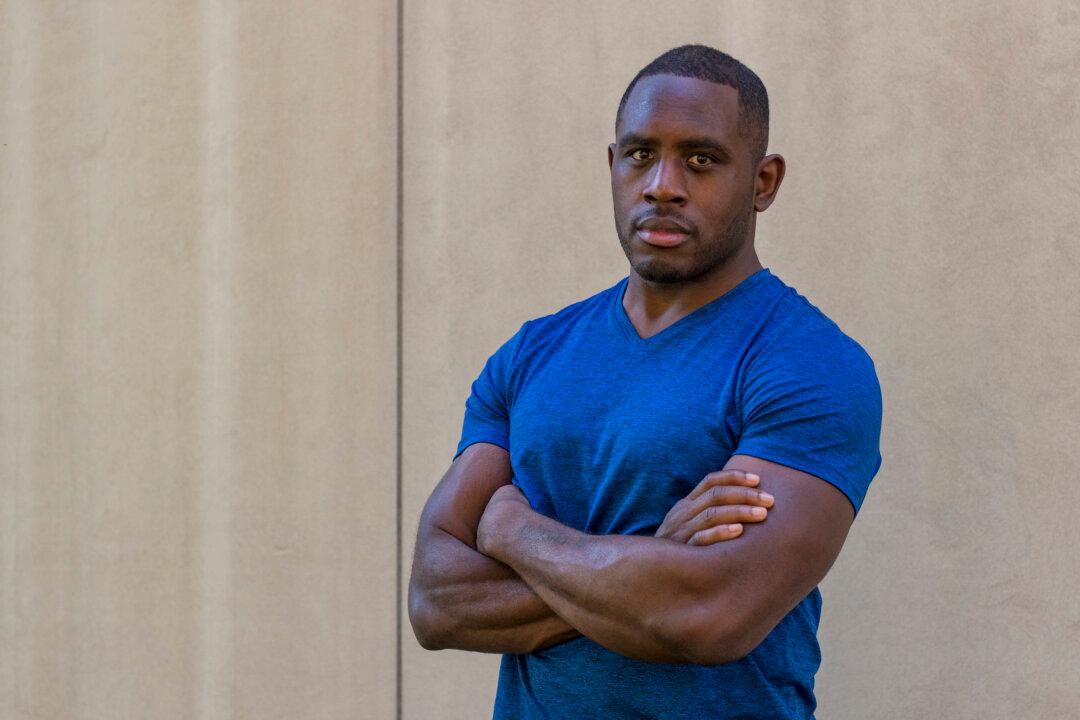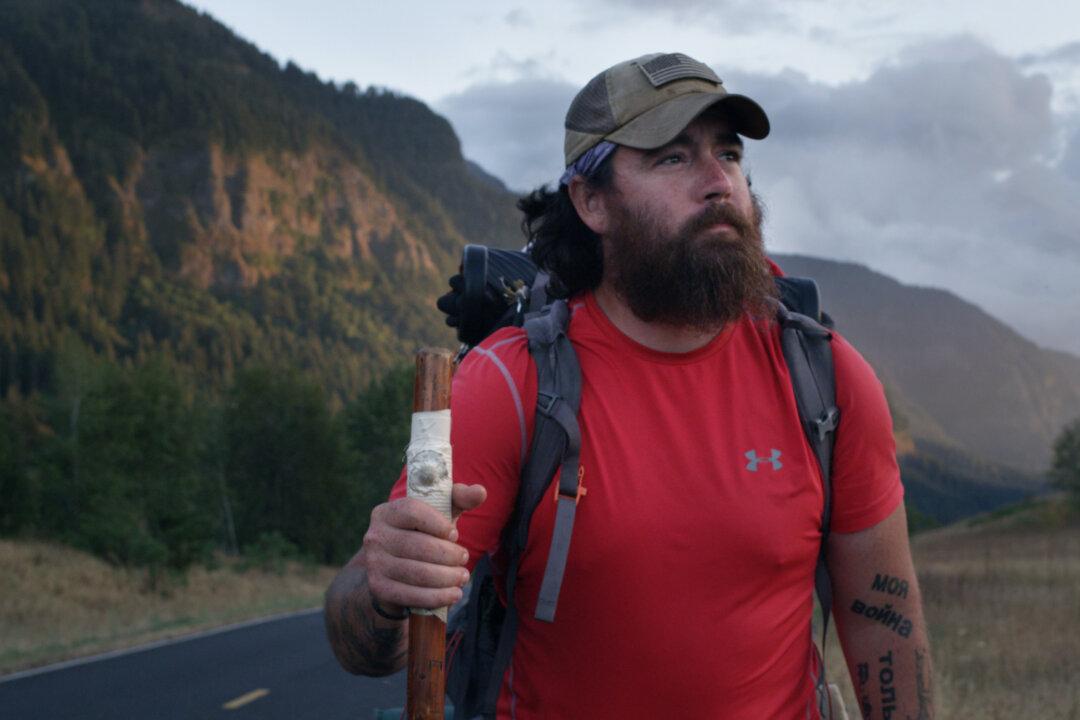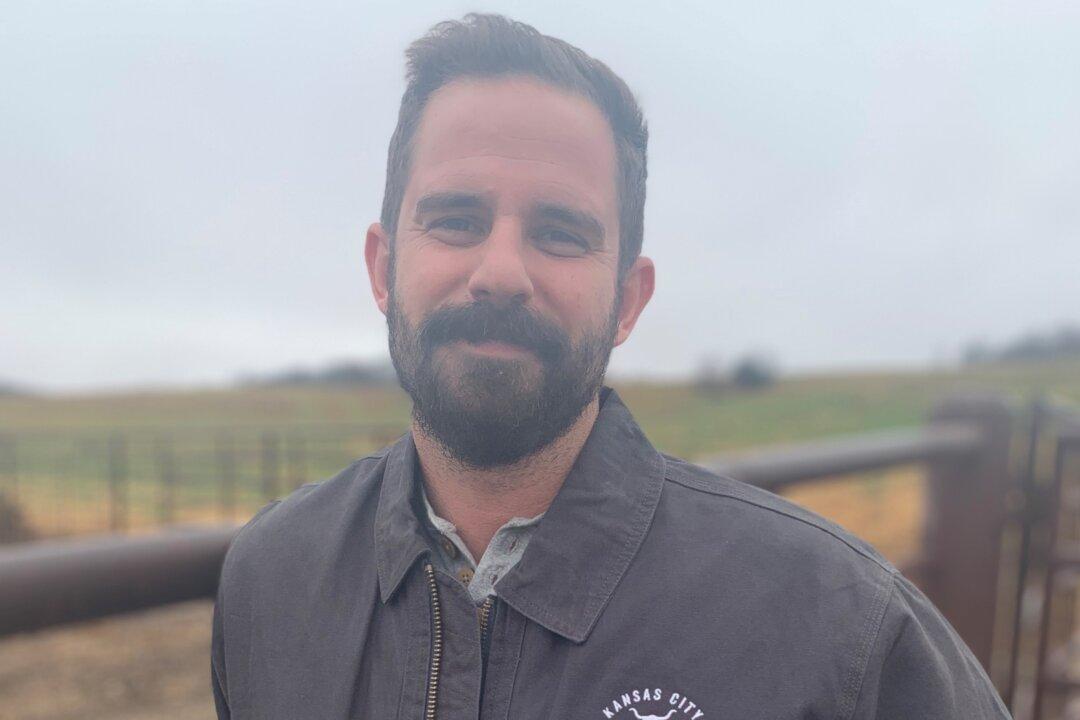Service dogs can be excellent companions for veterans with both physical and psychological wounds. One organization has taken the concept a step further with a pay-it-forward approach. At Warrior Canine Connection, veterans are helping themselves heal by training service dogs, and helping other veterans by providing these dogs to those who need them most.
Rick Yount, the executive director of Maryland-based Warrior Canine Connection, has been working in the field of social services for over 30 years. On Christmas of 1995, he was gifted a golden retriever puppy. At the time, he was working with children in the foster care system.






